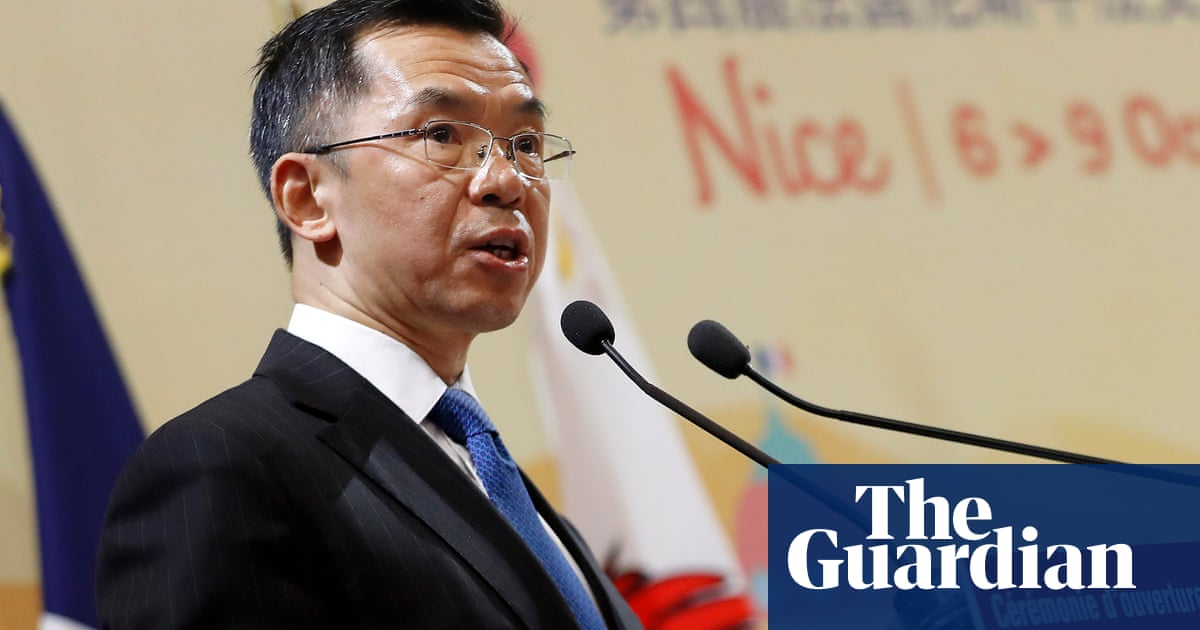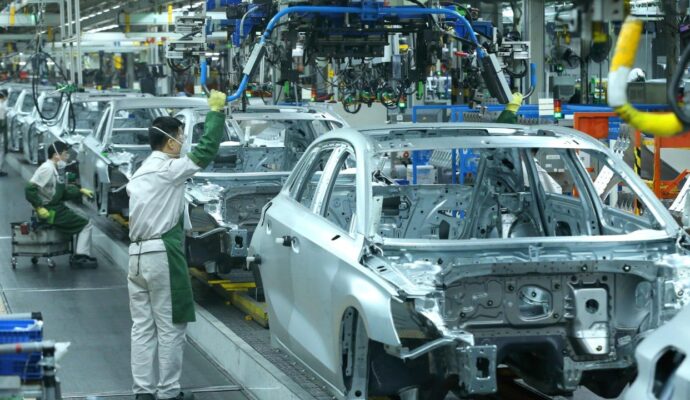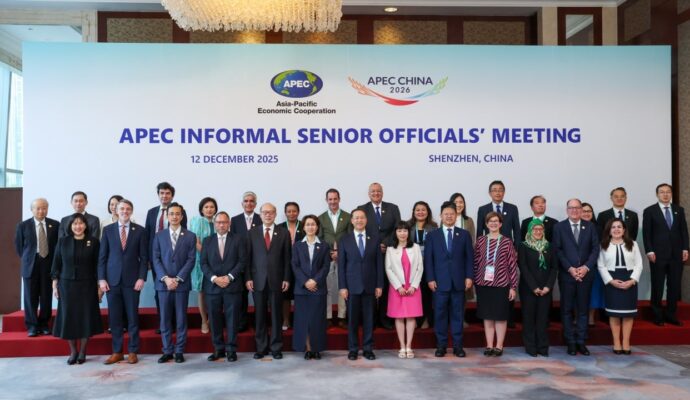
Beijing has insisted it respects the status of the independent nations that emerged from the USSR after “totally unacceptable” remarks by China’s ambassador to France questioning the sovereignty of former Soviet states sparked outrage in EU capitals.
France and the three Baltic states of Estonia, Lithuania and Latvia were among the members states on Monday to summon China’s envoys to account for the comments made late last week by Lu Shaye, which sparked a wave of outrage across Europe.
Lithuania’s foreign minister, Gabrielius Landsbergis, said the diplomats would be asked to explain if “China’s position has changed … and to remind them we’re not post-Soviet countries but countries that were illegally occupied by the Soviet Union”.
Landsbergis earlier tweeted: “If anyone is still wondering why the Baltic states don’t trust China to ‘broker peace in Ukraine’, here’s a Chinese ambassador arguing that Crimea is Russian and our countries’ borders have no legal basis”.
His Estonian counterpart, Margus Tsahkna, said he was seeking to find out “why China has such a position or comments about the Baltic states”. Tsahkna added: “I hope that there will be an explanation. We are not satisfied.”
A French government official said Lu would get a “very firm” update in Paris, while the Czech foreign minister, Jan Lipavský, said before a meeting of his EU counterparts in Luxembourg that the remarks were “totally unacceptable”.
The Italian foreign minister, Antonio Tajani, said he disagreed with Lu’s comments, while his Luxembourg counterpart, Jean Asselborn, called the comments a “blunder” and said efforts were being made to calm the situation.
Asked about his position on whether Crimea was part of Ukraine or not, Lu said in a French TV interview on Friday that historically it was part of Russia and had been offered to Ukraine by the former Soviet leader Nikita Khrushchev.
The independent sovereign nations that emerged after the fall of the former Soviet Union “don’t have effective status under international law because there is not an international agreement confirming their status as sovereign nations”, he said.
Beijng on Monday sought to defuse the row. Asked if China stood behind the envoy’s remarks, the foreign ministry spokesperson Mao Ning said China had been one of the first countries to establish diplomatic relations with former Soviet states.
“The Chinese side respects the status of the member states as sovereign states after the collapse of the Soviet Union,” Mao said, adding that on the issue of territorial sovereignty, Beijing’s position was consistent and clear.
China respects the sovereignty, independence and territorial integrity of all countries and upholds the purposes and principles of the United Nations charter, she said, describing the country’s stance on Ukraine as objective and fair.
“The Soviet Union was a federal state, and externally as a whole, it had the status of being a subject of international law, so conversely, after the dissolution of the Soviet Union, the various republics have the status of sovereign states,” she said.
Separately, China’s envoy to the EU, Fu Cong, said in an interview published on Monday that Beijing’s cooperation with Europe and other nations was “endless”, just as its ties with Russia were “unlimited”.
The EU’s top diplomat, Josep Borrell, said the bloc would “reassess and recalibrate our strategy towards China”, adding that foreign ministers would discuss Lu’s statements as part of planned EU talks on China on Monday.
EU leaders are expected to discuss China policy in June after a recent trip by Emmanuel Macron exposed differences in approach towards handling Xi Jingping’s authoritarian rule.
The French president caused anger and alarm when he said Europe needed to avoid getting drawn into a US-China conflict over “crises that are not ours”, namely the status of Taiwan.
His position – and apparent support for China’s efforts to play peacemaker in the Russian invasion of Ukraine – contrasts with a more hawkish approach from the European Commission president, Ursula von der Leyen.
In 2019, an EU policy document described China as simultaneously a “partner”, “economic competitor” and “systemic rival”, but different member states attach different weight to each part of that assessment.
One senior EU diplomat said the EU needed “to do better” in handling relations with China and find a unified line. “It’s important that when it comes to China, the EU speaks with one voice … If we don’t do that, they’ll have us for lunch,” they said.
Lu has previously acknowledged being part of the so-called “wolf warrior” class of Chinese diplomats, a nickname given to envoys who respond vehemently to critics they perceive as hostile to China.
Last August, he sparked outrage by suggesting Taiwanese people would need to be “re-educated” following a Chinese takeover of the self-ruled island, while during the Covid pandemic he suggested France was abandoning old people in nursing homes.


